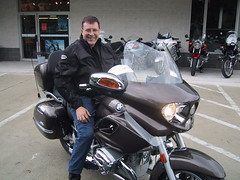Our Father
At times I find myself amid my commute riding on the train with nothing to read. Prayer and contemplation give me a sense of gain from moments that might otherwise be less productive.
I frequently remember the scene, in "Master and Commander" where the crew is assembled on the deck of the great ship for a short ceremony before the body of their deceased shipmate is given its burial at sea. It is a brief ceremony. The Lord's Prayer is their only prayer, but it seems it is one that all know by heart -- something that each member of the crew has in common with each other member, regardless of station: educated and uneducated, officer and skaliwags alike. They meet for a moment "on the level," as Masons say, in their parting.
So, as I ride out into the sunlight and through the rail yard north of Union Station, the question comes to me: "Why do we say The Lords Prayer in second person?" Why is there not a popular variety that provides it in the first person? Why, even when we say it to our selves, do we say it in second person and not first person? Why is it always "Our Father" and never "My Father?"
The answer that came to me is that we are taught to pray "in the spirit" and that when we pray properly, we do not pray for ourselves but for all and in concert with the communion of saints for whom we are the worldly expression of thought.
Labels: communion of saints, Prayer


0 Comments:
Post a Comment
<< Home